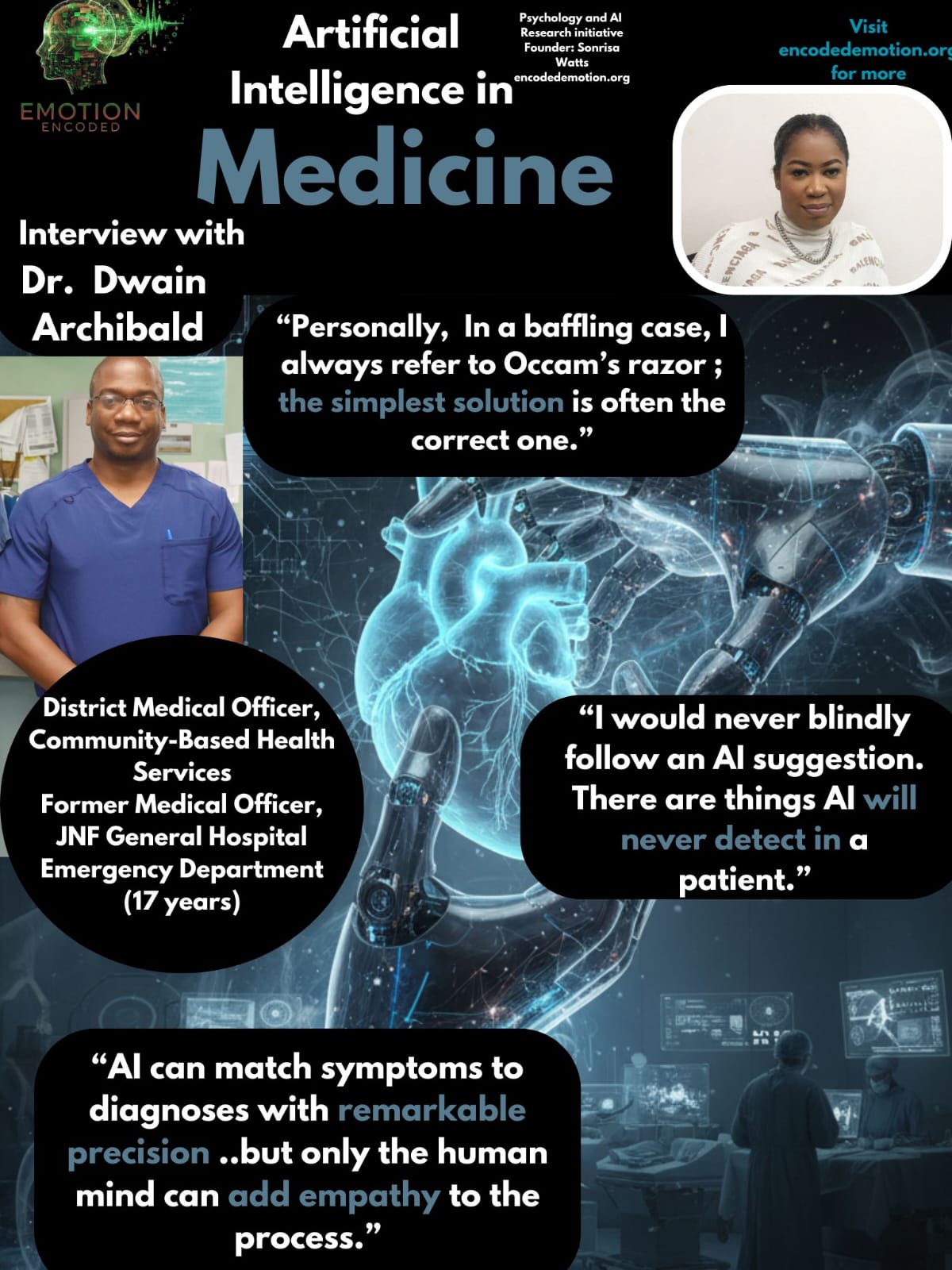After nearly two decades on the front lines of emergency medicine, Dr. Dwain Archibald has seen firsthand the power and the limits of technology in healthcare. Now serving as a District Medical Officer in Community-Based Health Services, his reflections on artificial intelligence (AI) in medicine strike a careful balance between innovation and humanity.
For Dr. Archibald, AI represents a valuable tool, a system capable of identifying patterns and probabilities far beyond human capacity. Yet, he cautions, technology cannot replace the clinician’s intuition or compassion.
His philosophy remains rooted in the fundamentals of clinical training: careful history-taking, physical examination, and thoughtful reasoning. In moments of diagnostic uncertainty, he turns to the timeless principle known as Occam’s razor, which reminds him that the simplest solution is often the correct one.
Dr. Archibald’s insights highlight a growing truth in modern healthcare. As AI continues to evolve, the role of the physician remains not just to interpret data, but to bring understanding, compassion, and human context to every case.
